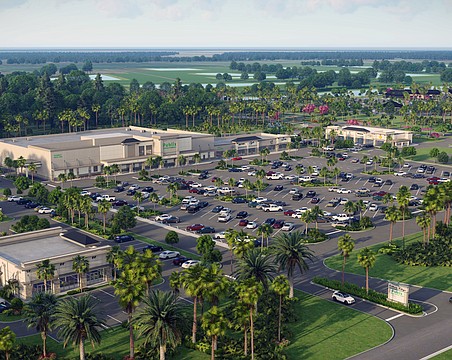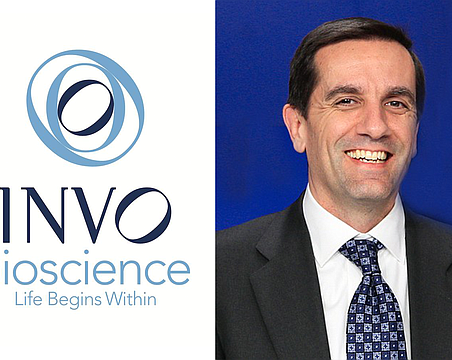Do not pass GO
REAL ESTATE by Jean Gruss | Editor/Lee-Collier
Capeopoly is no game. The economic development gathering in Cape Coral took on a more somber tone this year, but participants were comforted by the certainty of a rebound.
For the past five years, economic boosters in Cape Coral have hosted an event called "Capeopoly."
Based on the popular board game, the annual confab brings together top real estate brokers, economic development and elected officials. Until recently, it's been a joyous affair where business people talk about the city's stunning growth and dream of exciting future plans.
Monopoly jokes always abound when people network before the meeting, though most admitted the game hasn't been as fun to play this year.
Last year, 400 people showed up at Capeopoly to cheer projects in the fourth-fastest growing city in the country. At the center of it all is Pine Island Road, an arterial road that bisects the city where 6 million square feet of shops, offices and warehouses have been rising from dusty lots. The new space built in just four years was enough space to fill 105 football fields.
This year, about 100 people showed up to hear commercial broker Gary Tasman say there are no new commercial projects planned for Cape Coral in the near future. "Now we're looking at vacancies going up, rental rates going down," Tasman told the smaller, more subdued crowd. Cape Coral has no need for new office space until 2010 or industrial space until 2014 based on current demand, he says.
On the residential side, the city of Cape Coral issued 858 permits for new single-family homes at its high point in March 2005. In September this year, the city issued just 29 permits, the lowest in memory.
"We've never had a downturn that's lasted this long in Cape Coral," remarked Joe Mazurkiewicz, executive director of the Council for Progress Foundation, an economic development group in Cape Coral.
What happened?
Call it a serious case of overbuilding. It's a story longtime Floridians know repeats itself every few decades as the memory of the last boom fades with every newcomer who moves to the Sunshine State.
Russell Weyer, a Naples economist with Fishkind & Associates, explains the residential phenomenon this way: The number of new housing units built in Cape Coral during the boom was double the number of household formations.
There's so much inventory of new homes that equilibrium of supply and demand may not return until 2011, Weyer says. The 5,000 annual household formations in Cape Coral in 2006 will likely dwindle to 2,000 or 3,000 annually in the years ahead. Residential permits ,which had run up to 9,000 a year, will fall back to more typical levels of 1,000 to 2,000.
The slowing rate of population growth is due to several factors, including a recession in some Midwest states, as well as relatively high property taxes, insurance rates and home prices. Midwest states suffering economic decline have been a leading source of migration to Southwest Florida, Weyer says. When people can't sell their homes up north, they're less likely to buy in Florida.
Free parking at Capeopoly
As every seasoned Monopoly player knows, there is always a pot of money for those who can make it long enough to land in Free Parking. The key is outlasting your opponents and landing on the right squares.
"Right now is the time to plan," says Tasman, who is chairman of the Council for Progress Foundation and executive director of the Fort Myers office of Cushman & Wakefield. "Every city in Florida is doing the same thing."
The region has three engines that will power it through the downturn: Southwest Florida International Airport, Florida Gulf Coast University and Interstate 75.
The slowdown is also pushing home prices lower, which means workers have a better chance at homeownership. "We now have spec space," says Tasman, referring to commercial space built with the expectation that tenants would sign leases when it's built. "We've never had spec space in Cape Coral."
Janet Watermeier, a Cape Coral real estate consultant, says the growing unemployment rate among construction workers has a silver lining. "Last year, manufacturers were thinking of leaving Cape Coral because they couldn't find qualified people," she says. "Now, that's changing."
PERMIT BUSTER
When the City of Cape Coral counted just 29 permits for single-family homes in September, city officials had to go back and double-check the figure to make sure it was accurate.
After all, the city had issued 175 permits in Sept. 2006 and 765 in Sept. 2005. Twenty-nine permits was the lowest number in recent memory.
A look at which builders pulled permits includes a mix of local builders such as Baywood Construction, Castle Builders and Villa Homes.
But one community in Cape Coral has the greatest share of permits pulled: Sandoval. Just over 20% of the 29 permits pulled were by Ryland Homes and Pulte Home Corp. in that residential community.
In fact, sales at Sandoval are tracking ahead of last year. As of September, 63 homes have been sold in the community developed by Bonita Bay Group while net sales for 2006 were 62.
That's despite the fact that recently there were 5,234 existing homes for sale in Cape Coral, of which 1,389 were built in 2006 or 2007, according to the Realtors' association multiple-listing service. And that doesn't include speculative homes controlled by builders and those occupied by renters that may also be on the market but not listed on the Realtors' service.
"We continued to advertise and a lot of competitors have stopped," says Meredith Parsons, Sandoval's marketing coordinator.
What's more, buyers today are people who are going to live in their homes. "They're what we call good backlog," says Joe Fontana, division president of Ryland Homes. "I can't tell you the last time we've talked to an investor."
Lower prices have helped, too. Ryland has cut prices by $75,000 last year on homes that now start at $185,000 and reach to $233,000. Plus, Ryland is contributing $10,000 toward closing costs if a buyer uses Ryland's mortgage arm. "We weren't doing that in 2005 and 2006," Fontana says.
To reach these buyers, Parsons says Bonita Bay Group is trying new ways of marketing to them beyond the traditional advertising in daily newspapers. For example, the company put stickers in the freezer section of nearby supermarkets with this tag line: "We know another great place to chill." In grocery cart ads, the company tells shoppers: "Stock up on fun for the whole family."
Bonita Bay Group also advertises on the radio, urging listeners to visit the Web site visitsandoval.com. Once they log on, Web surfers are greeted with the message that they can live a tropical vacation every day. It's also a Web site dedicated to radio listeners so that the company can track the response to its on-air campaigns.
Movie theaters now show Sandoval ads too. "That was something new," Parsons says. "We're reaching a new demographic."
The community also promotes its unique amenities, including a dog park called Barkley Park. It recently sponsored an event there to raise $2,000 for the Gulf Coast Humane Society. About 200 dogs showed up with their owners to sample treats and get groomed.
Although it's hard to track some of these efforts, it builds name recognition. "Just from the word of mouth it was beneficial," Parsons says.
REVIEW SUMMARY
Industry. Real estate
Trend. Fast-growing cities experience slowdowns, too.
Key. Overbuilding doesn't mean a permanent decline in economic activity.





